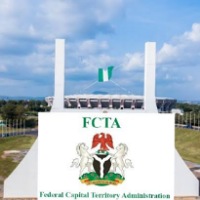Motoring
Manufacturing GDP to grow on back of auto industry investment

The proposed investments in assembly operations by Peugeot Automobiles of Nigeria (PAN), Innoson Vehicle Manufacturers, VON Nigeria, among other automobile dealerships in Nigeria, are expected to push up the manufacturing sector’s contribution to the country’s Gross Domestic Product (GDP),according to investigations.
The implication of this is that motor vehicles and assembly’s current contribution of 0.8 percent to the manufacturing sector will increase significantly, going by the volume of ongoing and proposed investments in the sub-sector.
Consequently, the manufacturing sector’s current GDP contribution of 9 percent, which represents about $46 billion of Nigeria’s $510 billion GDP, is also expected to increase considerably.
“We expect investments made by automobile companies to drive the manufacturing sector’s increased contribution to GDP,” said FBN Capital analysts, led by Gregory Kronsten, in a September 3 report.
“The emergence of the auto policy may catalyse the revival of the tyre manufacturing industry. Dunlop and Michelin used to have a strong presence in Nigeria. It also bodes well for companies that engage in the local production of rubber, such as Okomu Oil,” said the analysts.
According to the Manufacturers Association of Nigeria (MAN), the country’s manufacturing sector has 10 broad sub-sectors, which include food, beverage and tobacco; textile, apparel and footwear; wood and wood products; pulp, paper, printing and publishing, and chemical and pharmaceuticals.
Others are non-metallic products; domestic/industrial plastic and rubber; electrical and electronics; basic metal, iron and steel, as well as motor vehicles and miscellaneous assembly.
Data from MAN show this sector made N760.16 million investments in the first half of 2013 (H1 2013), while a total of N571.97 million investments were made in the second half of the year (H2 2013).
But since the launch of the Nigeria Industrial Revolution Plan (NIRP) in February 2014, significant investments have been added in the auto industry and along its value chain.
PAN Steel Group Corporation from China took advantage of the NIRP to invest $5 billion into a new steel plant in Nigeria that will produce 4-5 million metric tonnes per annum.
Adeniyi Ogunsanya, chairman, industrial/SME group, Nigerian Association of Chambers of Commerce, Industry, Mines and Agriculture (NACCIMA), said last week that a number of businessmen in the group are also gearing up to invest in ancillary industries such as bolts and knots, among others.
BusinessDay had earlier reported that a total of 21 automobile dealerships in Nigeria had made commitments with some foreign technical partners to set up assembly operations in the country since the announcement of the new automotive policy last year. Industry watchers say the move will boost local automobile assembly and discourage the influx of grey and parallel imports into the country.
Other dealerships which have signed agreements, or are in discussions with foreign technical partners, include Dana Motors, Transit Support Services Limited (owned by ABC Transport), Kewalram Chanrai Group, and Coscharis Motors.
The NIRP was designed to attract substantial foreign investment inflows in the short to medium term, and targets N5 trillion manufacturing revenue annually. It focuses on agriculture and agro-products, metals and solid minerals, oil and gas, construction and light manufacturing services, particularly the automobile and textile industries.
In tandem with the National Automotive Industry Development Plan and the Power Sector Master Plan, the NIRP has had an impact on the investment inflows into the auto industry.
At the launch of NIRP in February, President Goodluck Jonathan said, “The goal of the Nigeria Industrial Revolution Plan is to increase the contribution of the manufacturing sector to GDP, from the present four percent to more than 10 percent over the next five years. This will boost the annual revenue earnings of Nigerian manufacturers by up to N5 trillion per annum.”
Busty Okundaye, the Nigerian who led the team that set up General Motors in China, told BusinessDay in an interview that domestication of technology, both the product and the knowledge, was not an overnight business.
“The challenge will be in implementation of the new auto policy because it is just paper work,” Okundaye said.
BUSINESSDAY-
Motoring
FCTA Pulls Plugs On Taxi Rank, Terminal Services Contracts

The Federal Capital Territory Administration (FCTA) has ended contracts with taxi rank and terminal operators due to their failure to meet engagement terms and conditions.
Mr. Ubokutom Nyah, the Mandate Secretary of the Transportation Secretariat, FCTA, made this announcement during a meeting with managers of these terminals and taxi ranks in Abuja.
Nyah clarified that due to the operators’ failure to fulfill their engagement terms, the FCTA had to terminate their contracts.
He instructed them to transfer control of the ranks to the Administration within three months, starting from Nov. 21.
He lamented the presence of unauthorized motor parks in the city and assured the readiness of the Administration to establish proper taxi ranks and terminals in the capital.
He revealed that personally visiting the city’s taxi ranks, terminals, and unauthorized motor parks gave him direct insight into the poor condition of these facilities.
He emphasized that as the federal capital city, Abuja deserves better, highlighting that the poor condition of these facilities attracts various criminal elements.
He said “We must rid Abuja of all these. I have gone round the taxi ranks, and of all the places I visited, not one is worthy to be called even a village motor park.”
The Mandate Secretary stressed that the intention wasn’t punitive; rather, it aimed to revamp the sector, introduce new engagement terms, and modernize taxi ranks and terminals in the federal capital.
He also highlighted the plan to increase the number of terminals and ranks where necessary, which would positively impact the administration’s revenue.
He emphasized that this measure was part of a broader effort to eliminate illegal motor parks in Abuja and curb the associated criminal activities.
In response, Mr. Adebisi Lawal, the Operator of Jahi Taxi Rank, praised the administration’s initiative to modernize the taxi ranks and terminals.
Lawal urged the administration to prioritize current operators’ involvement in the selection of new developers for the modernization of the taxi ranks and terminals.
Motoring
Power Show Sees Soldiers Batter LASTMA Officer

It was a show of power at the Ojota area of Lagos on Monday as soldiers pummeled an officer of the Lagos State Traffic Management Authority, (LASTMA).
Eyewitness accounts claim that the ugly scene played out around 8am, and saw about eight soldiers pounce on the yet to identified LASTMA official, while his colleagues took to their heels.
The video of the melodrama has gone viral, where the LASTMA official was appealing to the soldiers, who appeared bent on ‘teaching him a lesson’.
This onslaught comes on the back of a reported assault of a soldier at the same location by LASTMA officials last week.
It would appear that what played out today was the army asserting its authority and defending their khaki as the armed soldiers carried out what looked like a revenge mission.
Eyewitnesses further averred that the victim was rushed to a nearby hospital, after the soldiers left the scene.
It was gathered that the authorities at LASTMA has reported the incident to the military authorities who are said to be looking into the matter.
Meanwhile many members of the public are rejoicing that the soldiers have taught the crude LASTMA official that power is stronger than power, for all their atrocities against motorists on Lagos roads.
Motoring
Intra-City Fares Skyrocket By 98% Month-On-Month – NBS
The impact of the removal of subsidy on Premium Motor Spirit (PMS), otherwise known as petrol, has seen the pump prices of the product skyrocket with a corresponding increase in the cost commercial transportation in Nigeria.
According to the National Bureau of Statistics (NBS), intra-city bus transportation fares across Nigerian cities, measured between May and June 2023, increased from N649.59 to N1,285.41 in June 2023.
This translates to 98 percent growth or N635.82 within the month in view.
The NBS made the data available in its Transport Fare Watch report for June 2023.
In the report, the NBS also shared the breakdown of bus journeys within the cities per drop for constant routes; bus journey intercity (state route); charges per person, amongst others.
On a year-on-year basis, the report has it that bus fares rose by 120.63 percent from N582.61 paid by commuters in June 2022.
The average fare paid by commuters for bus journey intercity per drop rose to N5,686.49 in June 2023 compared to N4,002.16 in May 2023 indicating an increase of 42.09 percent, month-on-month.
The report read, “The average fare paid by commuters for bus journeys within the city per drop increased by 97.88 per cent from N649.59 in May 2023 to N1,285.41 in June 2023.
On a year-on-year basis, it rose by 120.63 per cent from N582.61 in June 2022.
“In another category, the average fare paid by commuters for bus journey intercity per drop rose to N5,686.49 in June 2023, indicating an increase of 42.09 on a month-on-month basis compared to N4,002.16 in May 2023.
“On a year-on-year basis, the fare rose by 55.25 per cent from N3,662.87 in June 2022.”
Biztellers reported that the twin forces of forex pressure and increasing price of Brent in the global market would likely see the pump prices of petrol, increased again in no distant time in Nigeria.











